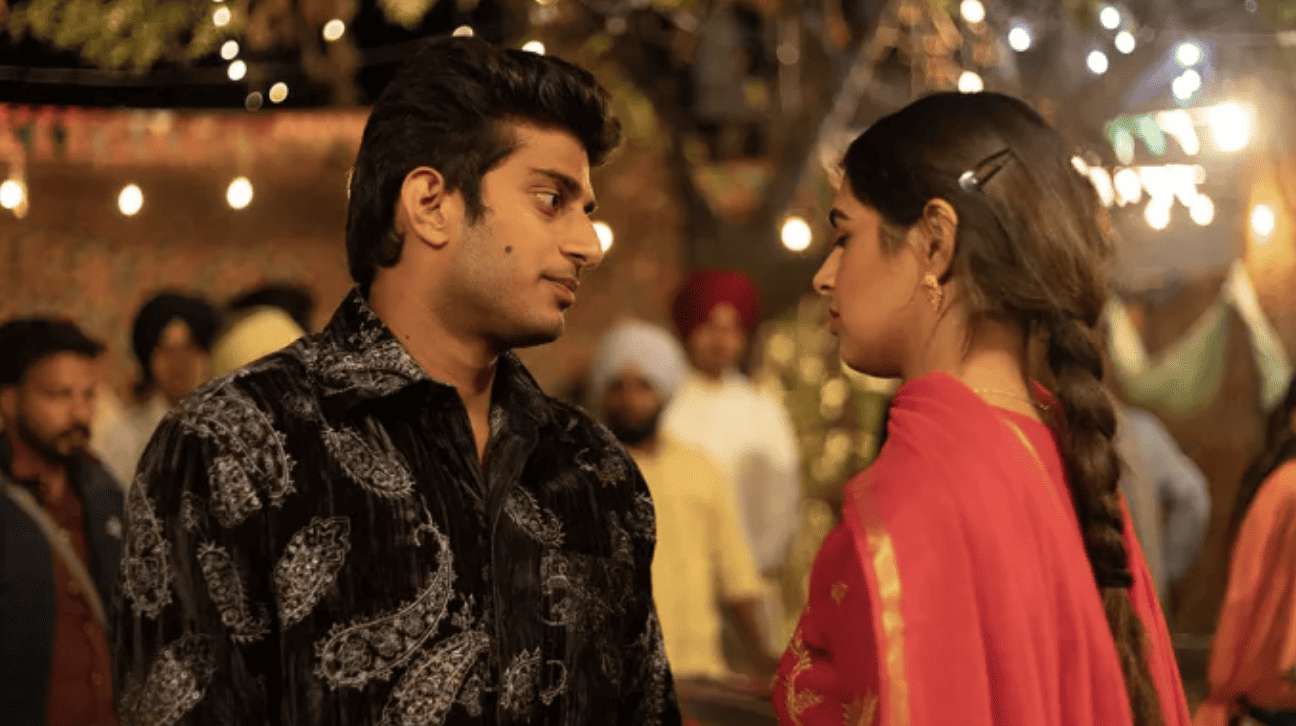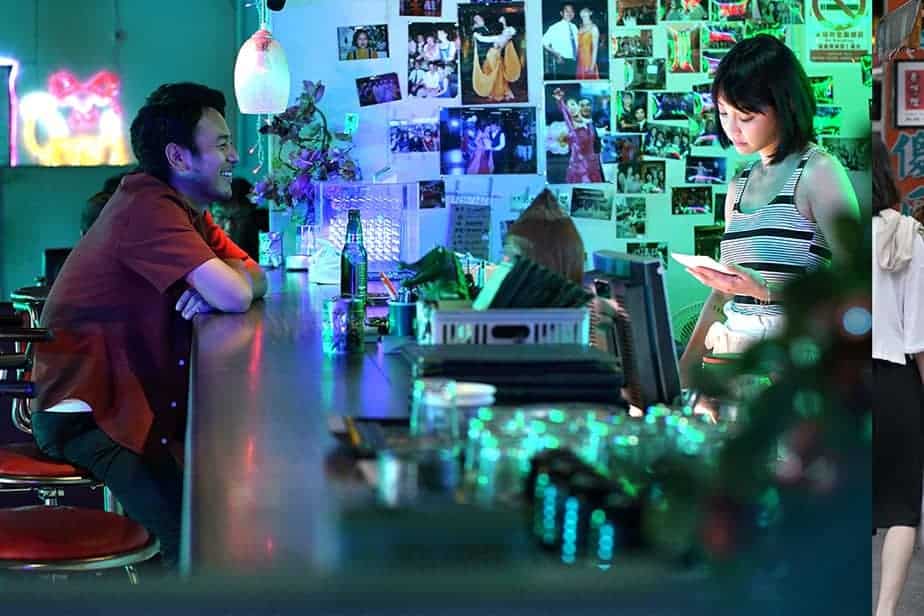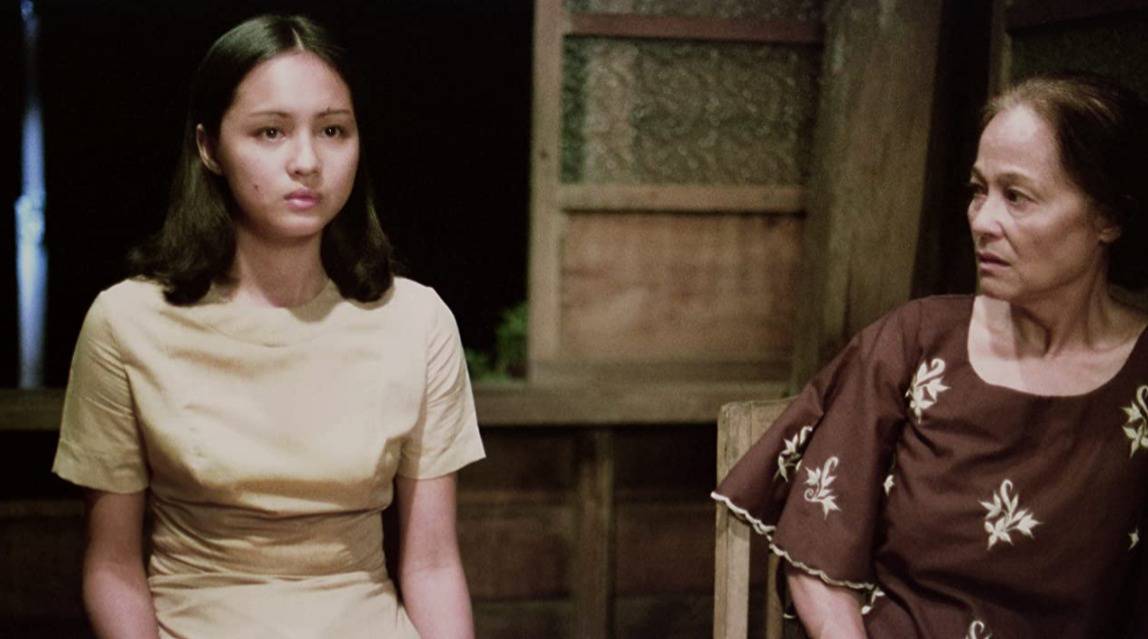Watching “Goodbye Dragon Inn” by director Tsai Ming-liang brought me back to my childhood Saturday afternoons, in big damp cinemas where punters smoked, noisily ate pumpkin seeds and gelatos, cruised and wandered around at any point of the film or searching for back row intimacy. Health & safety regulations and multiplex cinemas weren't in sight and when big melting holes appeared on the projected celluloid we had to shout to the projectionist to wake him up. The whole “watching a movie” experience was rich, complex and intrinsically related to the physical place.
“Goodbye Dragon Inn” is screening at Taiwan Film Festival UK

It's a dark and rainy night and the old Fu-Ho Grand Cinema in Taipei is about to close down for good. The film for the last-ever show is King Hu's 1967 Wuxia masterpiece “Dragon Inn” and the theatre is sold out or, at least, so it looks at first sight…
A Japanese young man (Kiyonobu Mitamura) takes shelter from the pouring rain and ventures into the cinema; the movie has already started and nobody is in the hall, only a stray black cat and a flickering neon light. He sneaks in, his footsteps echoing in the empty and cavernous corridors. The dark room is not full now, under his adjusting eyes only few archetypal cinema punters appear; a child is chomping on popcorn, two friends noisily suck some sticky snacks, few men are cruising for male company. He will change seat few times, visit the bathroom that seems to be more crowded than the cinema itself and – after few failed attempts to pick up a companion for the night – will follow a fellow smoker in a dark corridor of the building, only to be informed that the cinema is haunted.

Meanwhile, the ticket seller girl (Chen Siang-chyi) is back in her booth and is steaming a bright pink bun for her dinner, then meticulously cuts and reserves half of it for the projectionist. The girl is certainly the most ghostly figure of all; she walks slowly, with a heavy limp, climbing endless stairs, step by step, looking and longing for the projectionist who is never in his booth. She freezes every now and then, like an automata that run out of power, sometimes even up to 2:45 minutes so that you will probably find yourself checking if the screening device is working fine.
And ghostly indeed is the audience. Two old men are particularly absorbed in the vision, one is Miao Tien and the other is Chun Shih, they are two of the actors of Hu's film “Dragon Inn” that is screening in the cinema. They exchange glances, mirroring their cinematic younger selves duelling on screen; it is a moment of cinema magic, a beautiful and heartfelt touch of love.

The film is finally over and the ticket girl doesn't look surprised that the ghostly audience has evaporated at the turn of the lights and the auditorium is completely empty; the handsome projectionist (Tsai's regular, Lee Kang-sheng) finally appears to rewind the reels and close down the cinema for the last time. Going in opposite directions the two guardian angels of the Fu-Ho leave quietly in the stormy night.
Director Tsai Ming-liang's film is a sweet and melancholic homage to the cinematic experience, a love letter to a certain way to engage with cinema that includes not only the act of watching the film, but also the interaction with the space, and coping with the fellow viewers and all their annoyances. A cinema audience is made of lots of isolated units, a collective of strangers, so close to each other and also so distant. It sounds like life, doesn't it? And director Tsai has filled those theatre chairs with ghosts, memories and also hints of his favorite themes, the human longing for closeness and intimacy, the struggle of communications between souls and sexual frustration.

“Goodbye Dragon Inn” reminded me of “Ghosts of Rome” (Fantasmi a Roma by Antonio Pietrangeli, 1961), a bittersweet comedy in which a bunch of benign ghosts headed by Marcello Mastroianni inhabit a decrepit ancient Roman building, happily sharing it with the humans. When the owner finally dies and the greedy estate agent wants to tear the building down, they make up a plan to save it from the hands of the re-developers.
Tsai's movie is pervaded by the same melancholic and romantic idea that ghosts are what turn a space into a place. Memories impregnate the walls and narratives keep them alive. Even the Dragon Inn would be a pile of rocks in the middle of the desert without the burning passions and the energy of the swirling duelists. But this time ghosts cannot save the Fu-Ho Grand. “No one goes to the cinema anymore” tells the elderly Miao Tien to Chun Shih, in one of the mere handful of lines in the film, it's their farewell just before vanishing from the Cinema forever.

“Goodbye Dragon Inn” is shot in deep focus and made up almost entirely of long takes and static shots. The pace is slow and measured and the film has only few lines of dialogue. This shouldn't surprise those accustomed with Tsai Ming-liang's cinema but it may not be to everybody's taste. However, relaxing and tuning in with the movie's rhythm can be a very rewarding experience. The film is also pervaded by a quirky and subtle sense of humor in the way it hints at the frustrations and the mysterious identities of the spectators.
The sound design does an important job making up for the missing dialogues; crisp and rhythmic footsteps, the rain outside and the muffled audio track of the old “Dragon Inn” are layered and textured, and complement the elegant geometry of the frames
Despite not being one of his most assertive works, Tsai Ming-liang's “Goodbye Dragon Inn” has a hypnotic and atmospheric quality that makes it irresistible.















